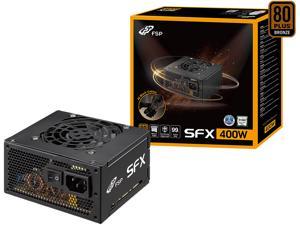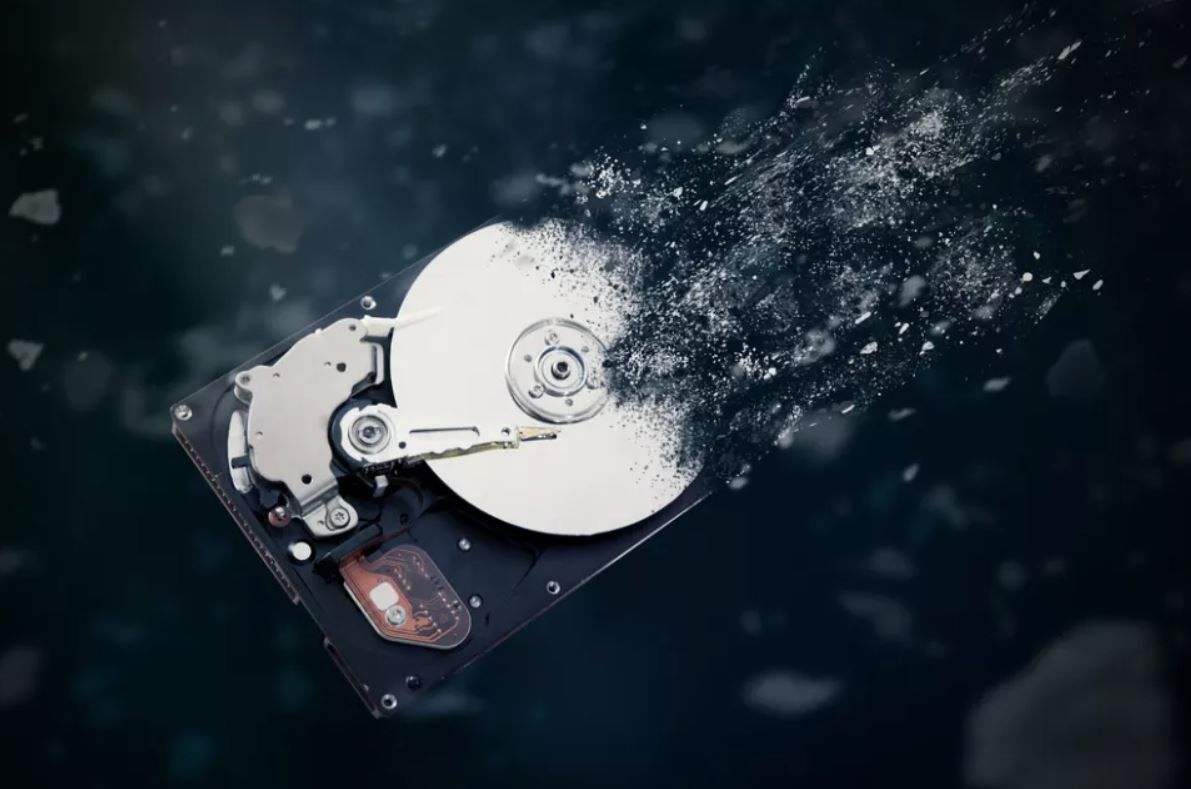kirkdickinson
Contributor
- Joined
- Jun 29, 2015
- Messages
- 174
I have a Z2 pool with 6 4TB drives. I ordered some 10TB drives with the goal to replace them one at a time to increase the pool size. I replaced one and it took 6-8 hours to resliver it. I used the replace feature so the old drive was still online until the new one was ready. I checked it the next day and all seemed to be fine. I got busy and didn't get the other drives replaced. About a week later, I checked and had a degraded pool notice. That brand new drive was faulted and offline. I just finished replacing that faulted drive with another 10TB drive and no longer have a degraded pool.
I am confused by the SMART information. What is this telling me?
I am confused by the SMART information. What is this telling me?
Last login: Sat May 1 11:19:01 on pts/0
FreeBSD 11.2-STABLE (FreeNAS.amd64) #0 r325575+4710c8b6420(HEAD): Fri Feb 14 13:59:19 UTC 2020
FreeNAS (c) 2009-2019, The FreeNAS Development Team
All rights reserved.
FreeNAS is released under the modified BSD license.
For more information, documentation, help or support, go here:
http://freenas.org
Welcome to FreeNAS
Warning: settings changed through the CLI are not written to
the configuration database and will be reset on reboot.
root@freenas:~ # smartctl -a /dev/da6
smartctl 6.6 2017-11-05 r4594 [FreeBSD 11.2-STABLE amd64] (local build)
Copyright (C) 2002-17, Bruce Allen, Christian Franke, www.smartmontools.org
=== START OF INFORMATION SECTION ===
Device Model: WDC WD101EFAX-68LDBN0
Serial Number: VCH9T8UN
LU WWN Device Id: 5 000cca 0b0d28a01
Firmware Version: 81.00A81
User Capacity: 10,000,831,348,736 bytes [10.0 TB]
Sector Sizes: 512 bytes logical, 4096 bytes physical
Rotation Rate: 5400 rpm
Form Factor: 3.5 inches
Device is: Not in smartctl database [for details use: -P showall]
ATA Version is: ACS-2, ATA8-ACS T13/1699-D revision 4
SATA Version is: SATA 3.2, 6.0 Gb/s (current: 6.0 Gb/s)
Local Time is: Sat May 1 11:21:21 2021 EDT
SMART support is: Available - device has SMART capability.
SMART support is: Enabled
=== START OF READ SMART DATA SECTION ===
SMART overall-health self-assessment test result: PASSED
General SMART Values:
Offline data collection status: (0x82) Offline data collection activity
was completed without error.
Auto Offline Data Collection: Enabled.
Self-test execution status: ( 0) The previous self-test routine completed
without error or no self-test has ever
been run.
Total time to complete Offline
data collection: ( 87) seconds.
Offline data collection
capabilities: (0x5b) SMART execute Offline immediate.
Auto Offline data collection on/off support.
Suspend Offline collection upon new
command.
Offline surface scan supported.
Self-test supported.
No Conveyance Self-test supported.
Selective Self-test supported.
SMART capabilities: (0x0003) Saves SMART data before entering
power-saving mode.
Supports SMART auto save timer.
Error logging capability: (0x01) Error logging supported.
General Purpose Logging supported.
Short self-test routine
recommended polling time: ( 2) minutes.
Extended self-test routine
recommended polling time: (1120) minutes.
SCT capabilities: (0x003d) SCT Status supported.
SCT Error Recovery Control supported.
SCT Feature Control supported.
SCT Data Table supported.
SMART Attributes Data Structure revision number: 16
Vendor Specific SMART Attributes with Thresholds:
ID# ATTRIBUTE_NAME FLAG VALUE WORST THRESH TYPE UPDATED WHEN_FAILED RAW_VALUE
1 Raw_Read_Error_Rate 0x000b 068 068 016 Pre-fail Always - 362676230
2 Throughput_Performance 0x0004 123 123 054 Old_age Offline - 124
3 Spin_Up_Time 0x0007 100 100 024 Pre-fail Always - 0
4 Start_Stop_Count 0x0012 100 100 000 Old_age Always - 2
5 Reallocated_Sector_Ct 0x0033 100 100 005 Pre-fail Always - 0
7 Seek_Error_Rate 0x000a 100 100 067 Old_age Always - 0
8 Seek_Time_Performance 0x0004 128 128 020 Old_age Offline - 18
9 Power_On_Hours 0x0012 100 100 000 Old_age Always - 212
10 Spin_Retry_Count 0x0012 100 100 060 Old_age Always - 0
12 Power_Cycle_Count 0x0032 100 100 000 Old_age Always - 2
192 Power-Off_Retract_Count 0x0032 100 100 000 Old_age Always - 97
193 Load_Cycle_Count 0x0012 100 100 000 Old_age Always - 97
194 Temperature_Celsius 0x0002 196 196 000 Old_age Always - 33 (Min/Max 16/40)
196 Reallocated_Event_Count 0x0032 100 100 000 Old_age Always - 0
197 Current_Pending_Sector 0x0022 100 100 000 Old_age Always - 88
198 Offline_Uncorrectable 0x0008 100 100 000 Old_age Offline - 0
199 UDMA_CRC_Error_Count 0x000a 200 200 000 Old_age Always - 0
SMART Error Log Version: 1
ATA Error Count: 229 (device log contains only the most recent five errors)
CR = Command Register [HEX]
FR = Features Register [HEX]
SC = Sector Count Register [HEX]
SN = Sector Number Register [HEX]
CL = Cylinder Low Register [HEX]
CH = Cylinder High Register [HEX]
DH = Device/Head Register [HEX]
DC = Device Command Register [HEX]
ER = Error register [HEX]
ST = Status register [HEX]
Powered_Up_Time is measured from power on, and printed as
DDd+hh:mm:SS.sss where DD=days, hh=hours, mm=minutes,
SS=sec, and sss=millisec. It "wraps" after 49.710 days.
Error 229 occurred at disk power-on lifetime: 69 hours (2 days + 21 hours)
When the command that caused the error occurred, the device was active or idle.
After command completion occurred, registers were:
ER ST SC SN CL CH DH
-- -- -- -- -- -- --
40 41 00 00 00 00 00 Error: UNC at LBA = 0x00000000 = 0
Commands leading to the command that caused the error were:
CR FR SC SN CL CH DH DC Powered_Up_Time Command/Feature_Name
-- -- -- -- -- -- -- -- ---------------- --------------------
60 00 10 e0 0d 09 40 00 2d+21:19:12.714 READ FPDMA QUEUED
2f 00 01 10 00 00 00 00 2d+21:19:12.714 READ LOG EXT
60 00 20 a0 0f 09 40 00 2d+21:19:02.779 READ FPDMA QUEUED
60 c0 18 e0 0e 09 40 00 2d+21:19:02.779 READ FPDMA QUEUED
60 00 08 e0 0b 09 40 00 2d+21:19:02.779 READ FPDMA QUEUED
Error 228 occurred at disk power-on lifetime: 69 hours (2 days + 21 hours)
When the command that caused the error occurred, the device was active or idle.
After command completion occurred, registers were:
ER ST SC SN CL CH DH
-- -- -- -- -- -- --
40 41 00 00 00 00 00 Error: UNC at LBA = 0x00000000 = 0
Commands leading to the command that caused the error were:
CR FR SC SN CL CH DH DC Powered_Up_Time Command/Feature_Name
-- -- -- -- -- -- -- -- ---------------- --------------------
60 00 68 e0 0c 09 40 00 2d+21:19:02.584 READ FPDMA QUEUED
2f 00 01 10 00 00 00 00 2d+21:19:02.584 READ LOG EXT
61 08 a0 60 fe 3f 40 00 2d+21:18:52.503 WRITE FPDMA QUEUED
61 08 98 60 fc 3f 40 00 2d+21:18:52.503 WRITE FPDMA QUEUED
61 08 90 60 04 40 40 00 2d+21:18:52.503 WRITE FPDMA QUEUED
Error 227 occurred at disk power-on lifetime: 69 hours (2 days + 21 hours)
When the command that caused the error occurred, the device was active or idle.
After command completion occurred, registers were:
ER ST SC SN CL CH DH
-- -- -- -- -- -- --
40 41 00 00 00 00 00 Error: UNC at LBA = 0x00000000 = 0
Commands leading to the command that caused the error were:
CR FR SC SN CL CH DH DC Powered_Up_Time Command/Feature_Name
-- -- -- -- -- -- -- -- ---------------- --------------------
60 00 20 98 f2 08 40 00 2d+21:18:39.463 READ FPDMA QUEUED
2f 00 01 10 00 00 00 00 2d+21:18:39.463 READ LOG EXT
60 40 40 18 f6 08 40 00 2d+21:18:32.546 READ FPDMA QUEUED
60 80 38 98 f5 08 40 00 2d+21:18:32.546 READ FPDMA QUEUED
60 00 30 98 f4 08 40 00 2d+21:18:32.546 READ FPDMA QUEUED
Error 226 occurred at disk power-on lifetime: 69 hours (2 days + 21 hours)
When the command that caused the error occurred, the device was active or idle.
After command completion occurred, registers were:
ER ST SC SN CL CH DH
-- -- -- -- -- -- --
40 41 00 00 00 00 00 Error: UNC at LBA = 0x00000000 = 0
Commands leading to the command that caused the error were:
CR FR SC SN CL CH DH DC Powered_Up_Time Command/Feature_Name
-- -- -- -- -- -- -- -- ---------------- --------------------
60 00 08 98 ef 08 40 00 2d+21:18:32.345 READ FPDMA QUEUED
60 18 50 e0 4a c3 40 00 2d+21:18:25.417 READ FPDMA QUEUED
60 18 48 c0 c6 bd 40 00 2d+21:18:25.417 READ FPDMA QUEUED
60 40 40 18 f6 08 40 00 2d+21:18:25.417 READ FPDMA QUEUED
60 80 38 98 f5 08 40 00 2d+21:18:25.417 READ FPDMA QUEUED
Error 225 occurred at disk power-on lifetime: 69 hours (2 days + 21 hours)
When the command that caused the error occurred, the device was active or idle.
After command completion occurred, registers were:
ER ST SC SN CL CH DH
-- -- -- -- -- -- --
40 41 00 00 00 00 00 Error: UNC at LBA = 0x00000000 = 0
Commands leading to the command that caused the error were:
CR FR SC SN CL CH DH DC Powered_Up_Time Command/Feature_Name
-- -- -- -- -- -- -- -- ---------------- --------------------
60 00 78 d0 b3 08 40 00 2d+21:17:54.855 READ FPDMA QUEUED
60 40 90 90 b7 08 40 00 2d+21:17:47.886 READ FPDMA QUEUED
60 40 88 d0 b5 08 40 00 2d+21:17:47.886 READ FPDMA QUEUED
60 00 80 d0 b4 08 40 00 2d+21:17:47.886 READ FPDMA QUEUED
60 00 70 d0 b2 08 40 00 2d+21:17:47.886 READ FPDMA QUEUED
SMART Self-test log structure revision number 1
No self-tests have been logged. [To run self-tests, use: smartctl -t]
SMART Selective self-test log data structure revision number 1
SPAN MIN_LBA MAX_LBA CURRENT_TEST_STATUS
1 0 0 Not_testing
2 0 0 Not_testing
3 0 0 Not_testing
4 0 0 Not_testing
5 0 0 Not_testing
Selective self-test flags (0x0):
After scanning selected spans, do NOT read-scan remainder of disk.
If Selective self-test is pending on power-up, resume after 0 minute delay.
root@freenas:~ #


